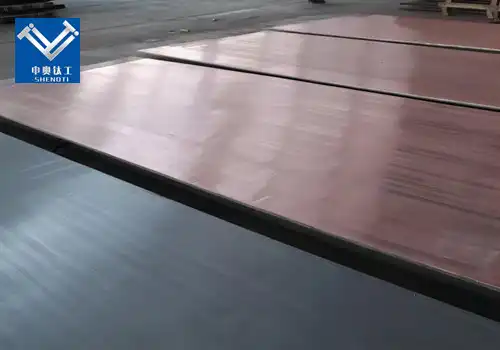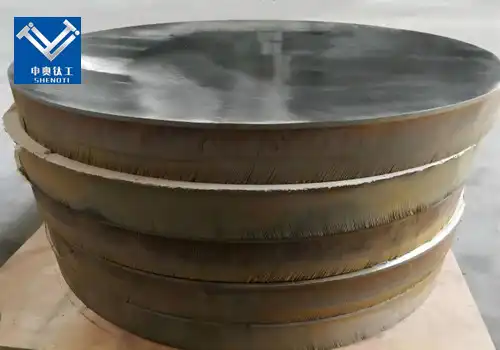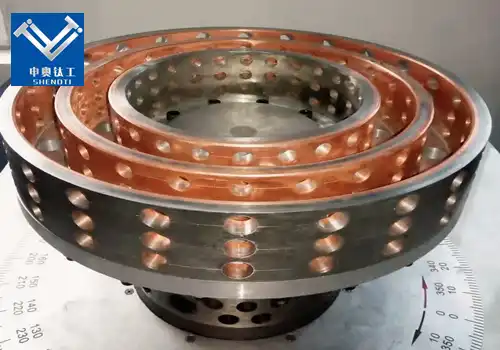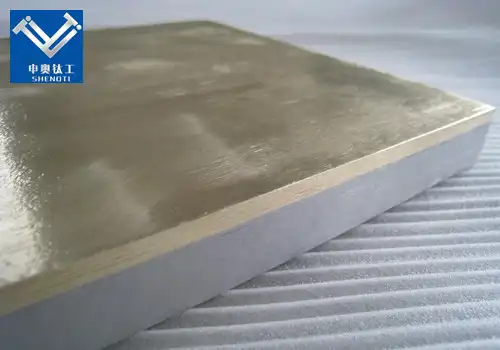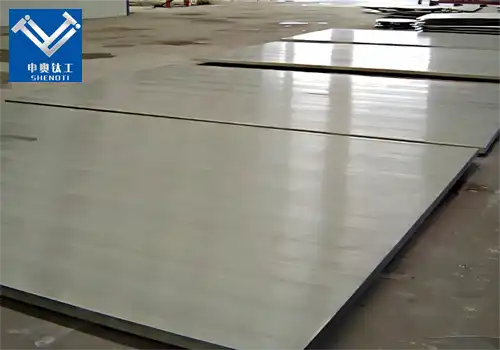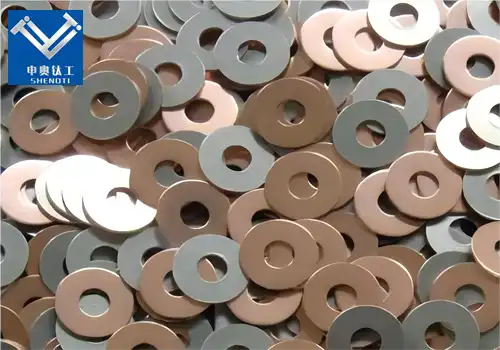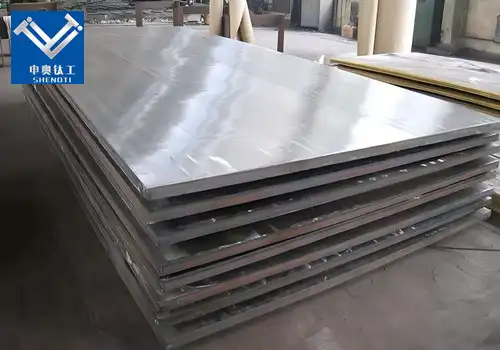
In Which Industries Are Nickel Titanium Clad Plates Mainly Used?
2025-05-09 15:24:52
In Which Industries Are Nickel Titanium Clad Plates Mainly Used?
Nickel titanium clad plates—composite materials combining the corrosion resistance of nickel with the strength and lightweight properties of titanium—have become indispensable across various industries. These plates are engineered through advanced bonding techniques such as explosion bonding, roll bonding, or diffusion bonding, resulting in a material that leverages the best attributes of both metals. Their unique properties make them suitable for applications demanding high corrosion resistance, strength, and durability.
1. What Are the Primary Applications of Nickel Titanium Clad Plates in the Chemical and Petrochemical Industries?
The chemical and petrochemical sectors often involve processes with highly corrosive substances and extreme temperatures. Nickel titanium clad plates are particularly suited for these environments due to their exceptional corrosion resistance and mechanical strength.
Corrosion Resistance in Aggressive Environments
Nickel's resistance to various acids and alkalis, combined with titanium's stability, makes these clad plates ideal for equipment exposed to harsh chemicals. Applications include:
Heat Exchangers and Condensers: Used in systems where corrosive fluids are present, ensuring longevity and efficiency.
Pressure Vessels and Reactors: Suitable for containing reactive substances at high pressures and temperatures.
Piping Systems: Employed in transporting corrosive chemicals, reducing maintenance and replacement costs.
The combination of nickel and titanium ensures that these components can withstand the rigors of chemical processing, leading to safer and more reliable operations.
2. How Do Nickel Titanium Clad Plates Benefit the Power Generation and Desalination Industries?
Power generation and desalination processes often involve exposure to high temperatures, pressures, and corrosive environments, especially when dealing with seawater or flue gases. Nickel titanium clad plates offer solutions to these challenges.
Applications in Power Generation
In power plants, especially those utilizing fossil fuels, equipment is subjected to flue gases containing sulfur compounds and moisture, leading to corrosion. Nickel titanium clad plates are used in:
Flue Gas Desulfurization (FGD) Systems: Lining components to resist acidic condensates.
Heat Recovery Steam Generators (HRSGs): Enhancing durability and efficiency in heat exchange processes.
Role in Desalination Plants
Desalination involves processing seawater, which is highly corrosive due to its salt content. Nickel titanium clad plates are employed in:
Evaporators and Condensers: Providing corrosion resistance and thermal conductivity.
Piping and Storage Tanks: Ensuring long-term durability against saline environments.
By incorporating nickel titanium clad plates, these industries achieve improved equipment lifespan, reduced maintenance, and enhanced operational efficiency.
3. What Advantages Do Nickel Titanium Clad Plates Offer in the Marine and Aerospace Industries?
The marine and aerospace sectors demand materials that can withstand corrosive environments, high stress, and temperature variations. Nickel titanium clad plates meet these requirements effectively.
Marine Industry Applications
In marine environments, materials are constantly exposed to saltwater, leading to corrosion. Nickel titanium clad plates are utilized in:
Shipbuilding: Constructing hulls and other components requiring corrosion resistance.
Offshore Platforms: Building structures that endure harsh sea conditions.
Seawater Desalination Equipment: Enhancing durability and performance.
Aerospace Industry Applications
Aerospace components must be lightweight yet strong and resistant to extreme temperatures. Nickel titanium clad plates are used in:
Aircraft Structural Components: Providing strength without adding excessive weight.
Engine Parts: Withstanding high temperatures and corrosive gases.
Satellite and Spacecraft Components: Ensuring reliability in the vacuum of space.
The integration of nickel titanium clad plates in these industries leads to enhanced safety, performance, and longevity of critical components.
4. How Are Nickel Titanium Clad Plates Utilized in the Medical and Electronics Industries?
The medical and electronics fields require materials that are biocompatible, corrosion-resistant, and possess excellent electrical properties. Nickel titanium clad plates fulfill these criteria.
Medical Industry Applications
In medical devices, materials must not react adversely with the human body. Nickel titanium clad plates are used in:
Surgical Instruments: Providing strength and corrosion resistance.
Implants: Offering biocompatibility and durability.
Medical Equipment Components: Ensuring reliability and longevity.
Electronics Industry Applications
Electronics require materials with good electrical conductivity and resistance to environmental factors. Nickel titanium clad plates are employed in:
Connectors and Terminals: Ensuring stable electrical connections.
Battery Components: Providing corrosion resistance and conductivity.
Electronic Enclosures: Protecting sensitive components from external factors.
The use of nickel titanium clad plates in these industries contributes to the development of reliable, safe, and long-lasting products.
Contact Us
For more information on nickel titanium clad plates and how they can benefit your industry, please reach out to us:
Email: zh@baojiti.com.cn
Our team is ready to provide detailed information, technical support, and customized solutions to meet your specific requirements.
YOU MAY LIKE











